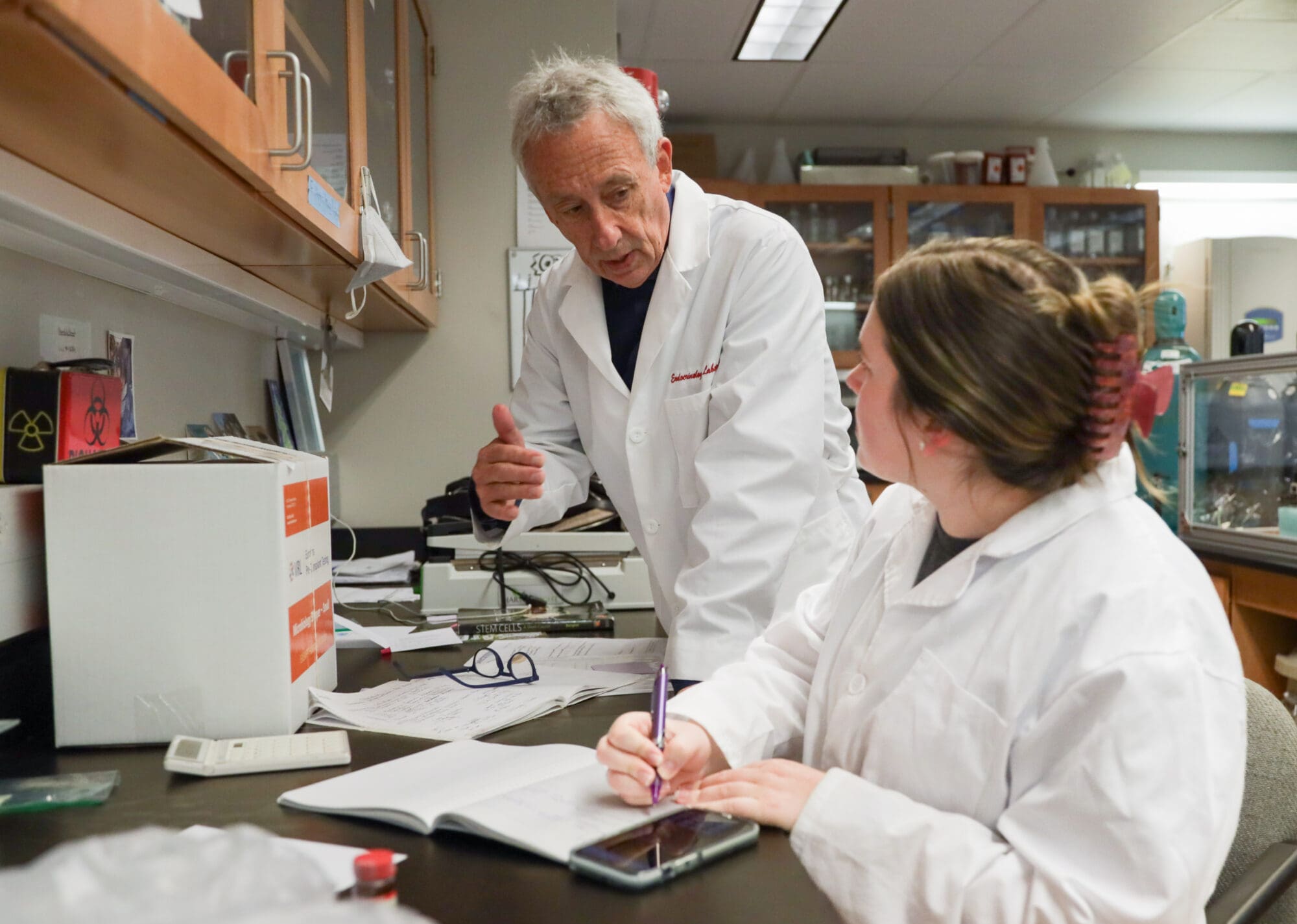Home / Academics / Programs / Major / Biomedical Science
Biomedical Science
Prepare for a future in healthcare with a Biomedical Science major that dives into the biological systems behind human health. Whether you’re aiming for medical school or a career in the health professions, this degree gives you a strong foundation in biology, chemistry, sociology, and psychology—key areas for understanding patient care and medical advancements.
From your first year, you’ll gain hands-on research experience through labs, independent studies, and summer projects, with the option to count up to three research hours toward your degree. Plus, you can tailor your studies with concentrations in pre-med, pre-veterinary science, or research and development, ensuring you’re ready for the next step in your career.
Experiential Learning
Biomedical science students gain practical experience through hands-on research, faculty mentorship, and real-world applications of their studies:
- Faculty-led research – You’ll have chances to collaborate with faculty in research labs, allowing you to earn course credit while developing technical skills and contributing to ongoing scientific discoveries.
- One-on-one mentorship – Students receive personalized guidance from faculty mentors, helping them navigate research projects, career paths, and professional development opportunities.
- Research publication and presentations – Students have the opportunity to publish their research or present at professional conferences, building credibility and expanding their academic and professional networks.
- Senior capstone project – All Biology students complete an independent research project in their senior year, applying their knowledge to real-world biomedical challenges. This experience strengthens critical thinking, problem-solving, and communication skills essential for graduate school, medical school, or careers in biomedical research.
- Networking and professional development – Students connect with peers and professionals through Tri-Beta Honor Society and the Biology Undergraduate Society, gaining access to career resources, guest lectures, and networking events.
Program Details
Degree Concentrations
Take your career any way you want! Explore the different degree concentrations that we offer so you can personalize your education.
The Biomedical Science concentration in Research and Development prepares you to be an innovator in the medical world. This degree emphasizes research, problem-solving, and the scientific process.
Starting in your first year, you’ll gain hands-on lab experience and learn research methods, building on them through labs, independent studies, and summer research. You’ll also study chemistry, sociology, and psychology—key to your professional interests.
The Biomedical Science concentration in Pre-Medicine prepares you for success in medical school or other post-graduate work such as dental school or physician assistant programs. This degree is an excellent foundation for medical school.
You’ll learn research methods starting in your first year and build on them through labs, independent studies, and summer research. You’ll also gain hands-on experience in a cadaver lab, exploring medical physiology and human anatomy.
The Biomedical Science in Veterinary Science concentration prepares you for a career in animal health. This degree is a strong foundation for veterinary school. You’ll start learning research methods in your first year and build on them through labs, independent studies, and summer research.
The Veterinary Science concentration gives you the skills to succeed on graduate school entrance exams. Depending on the graduate program you choose, you will either take the GRE or MCAT.
Career Opportunities
Biomedical Science majors are well-prepared for careers as chiropractors, dentists, pharmacists, physicians, scientists, and veterinarians. Many students also go on to medical school or pursue graduate degrees.
Minors
The biology minor, available to all students, provides a foundation in biological processes and their practical applications. It includes biology courses and requires statistics coursework.
The biology minor pairs nicely with other science degrees, offering you the opportunity to gain more experience in biology while at Bradley.
The neuroscience minor combines biology and psychology to help you understand behavior. You’ll explore topics like addiction, genetics, learning, and perception. This minor is ideal for careers in medicine, research, marketing, or pharmaceuticals.
While open to all students, space is limited. To apply, take PSY 201 Brain and Behavior as a first-year student and apply by fall of your sophomore year.
Bradley’s sustainability minor, open to all students, provides you with knowledge and skills to live more sustainably, inspire others to do the same, and tackle sustainability challenges in your career. You can tailor the minor to your interests through optional tracks in policy and socioeconomics, science and technology, or art and humanities.
In this interdisciplinary minor, courses cover the intersection of sustainability with engineering, natural sciences, economics, politics, and more, helping you to develop problem-solving skills necessary to address complex social, environmental, and economic challenges.

